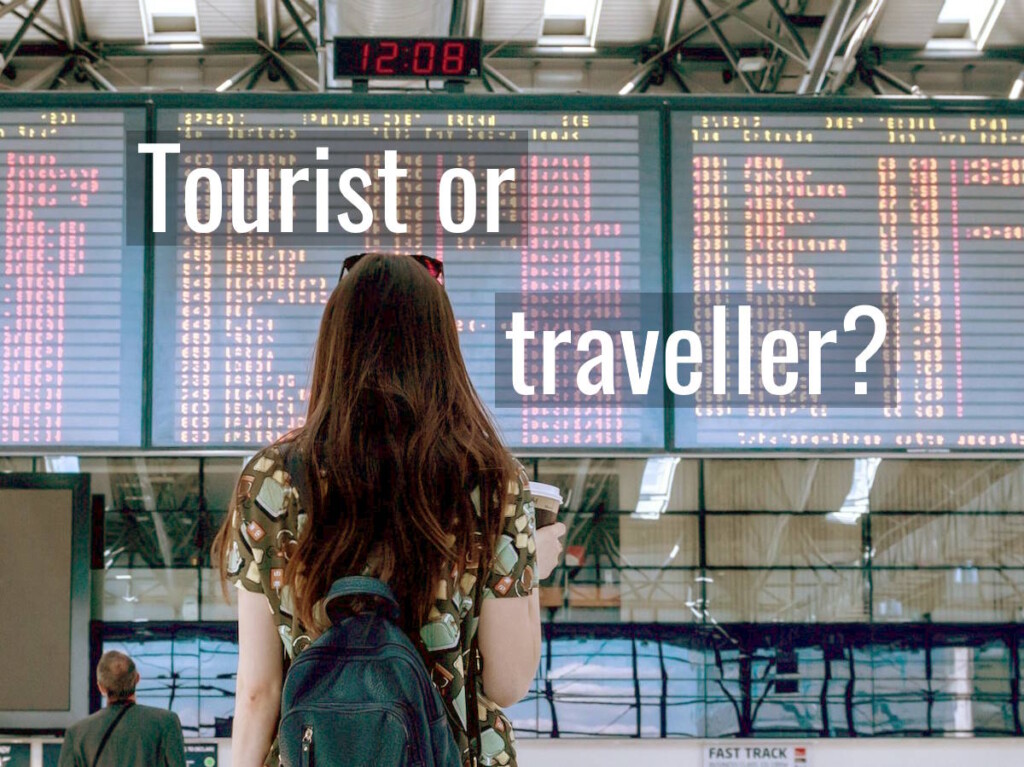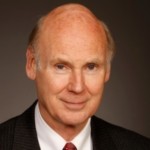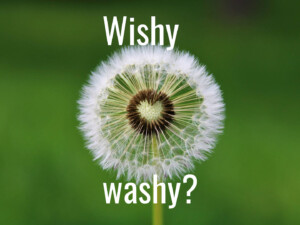Tourist vs traveller: What’s the difference?

What is the difference between a tourist and a traveller?
How do the behaviours and attitudes of tourists differ from those of travellers when interacting with people and places?
Your correspondent put these tourist vs traveller questions to “GT’s” diverse network of travel & tourism stakeholders — “GT” Insight authors, “GT” Partners, and their invitees — and invited emailed written responses of no more than 300 words.
Click/touch a name to go to their answer:
- Saverio F Bertolucci — Different modes and motivations for travel
- Zohreh Khosravi — Tourist vs traveller: Be responsible, regardless
- S Fatemeh Mostafavi Shirazi — The differences are narrowing
- Jim Butcher — For some, ‘moral and cultural status’ matters
- K Michael Haywood — Tourist vs traveller: Is it relevant?
- Peter Richards — Leave that baggage at home
- Geoffrey Lipman — Tourist vs traveller? ‘The planet doesn’t care’
- Dorji Dhradhul — In Bhutan: A ‘visitor’ when planning, a ‘guest’ upon arrival
- Steve Noakes — Will AI influence behaviours, attitudes?
- David Jarratt — ‘The designation is temporary, fluid, and, ultimately, flawed’
- Sudipta K Sarkar — Tours can be ‘creatively recreated’ to be more like travel
- Ivana Damnjanović — Better to focus on adjectives, not nouns
- Edwin Magio — Distinctions are ‘used to make people feel inferior/superior’
- Ha Phan — What matters is a happy experience for all concerned
- Susan Eardly — ‘It doesn’t matter as long as you’re seeing the world’
- Elisa Spampinato — ‘The precious baggage of meaning’
- ChatGPT — Travellers ‘tend to have a more positive impact’ than tourists
- What do you think?
Previous “GT” Insight Bites:
- The heads of finance, operations, and PR walk into their boss’s office …
- Yes, Tourism Minister
- What are tourism’s biggest challenges & threats over the next five years?
- ‘Tourism is built on the backbone of white supremacy’. What do you think?
- Really, what’s the difference? ‘Sustainable tourism’ vs ‘regenerative tourism’
- Want a career in tourism? Important things you should know
- Diverse perspectives on travel & tourism and a fairer world
- Diverse perspectives on economic degrowth and tourism
- Diverse perspectives on visitor dispersion
Different modes and motivations for travel
Saverio Francesco Bertolucci, Administrative Assistant, Alcambarcelona, Spain
Tourists and travellers are not exactly the same.
I describe the traveller as a subtype of tourist who is dedicated to making journeys.
Travellers invest time and money to see many different destinations using all transport means possible.
Travellers’ aim is to get an overview of many different places, therefore they do not properly settle down in an area, but rather move quickly from one destination to another. The most famous cluster of travellers is represented by globetrotters.
In general tourists’ needs and wants are more pretentious and their impact on the local economy can be more powerful.
Tourists often select a specific destination for the duration of a trip, visiting many cultural and natural heritage sites, restaurants, and other attractions. They rarely organise more than one day trip away from that destination.
Differences can be defined also on a character-based analysis: Travellers are free spirits who wish to make a connection with their inner selves, while tourists look for mesmerising experiences to increase their knowledge of a place and/or enjoy its goods and services.
It is important to note that these are general traits. There are always exceptions.
Tourist vs traveller: Be responsible, regardless
Zohreh Khosravi, content strategist, Iran
Everything hinges on the attitude and behaviour of tourists or travellers in their interaction with the host community and the destination, regardless of their category.
It is better to use the term ‘responsible tourist’ or ‘responsible traveller’ than simply tourist or traveller, because responsible people are ultimately what any destination wants to attract.
For simplicity I’ll refer to tourists … responsible tourists.
Responsible tourists place great value on the destinations they visit. From the moment they arrive they consider themselves involved in the improvement of the destination and the well-being of its people.
They plan and conduct their trips in such a way that residents benefit, as well as themselves.
When meeting residents, responsible tourists don’t feel separate or superior, but consider differences in lifestyle and culture as learning opportunities. Responsible tourists honour the local identity.
Responsible tourists prefer to stay in sustainable accommodations and simple ecolodges instead of chain hotels and international resorts.
Rather than eating in chain fast foods and international restaurants, responsible tourists prefer the experience of eating in simple, clean, and cosy local cafes; perhaps even observing and participating in the cooking process.
Similarly, such a tourist does not go to luxury and brand stores.
When buying souvenirs to take home, they look for real products that come from the heart of the local culture; arts and crafts that are actually produced by locals.
This sort of respect is what separates the responsible tourist and responsible traveller from simply the tourist or the traveller.
Tourist vs traveller: The differences are narrowing
S Fatemeh Mostafavi Shirazi, visiting scholar, Iran
On February 7, I put “What is the difference between a tourist and a traveller” into Google. It returned 69,800,000 results in 0.62 seconds.
The attempt to differentiate the ‘tourist’ from the ‘traveller’ has a long history. Authors with different cultures, backgrounds, and perspectives have written about the similarities and differences between tourists and travellers.
It mainly comes down to the purpose of travel.
For example, were many early travellers in fact “proto-tourists”, as Crick described them in 1985?
Governments like to keep track of who is coming and going, and why, which makes definitions important for statistics.
From that perspective, in 2008, the International Recommendations for Tourism Statistics (IRTS) described a traveller as “someone who moves between different geographic locations, for any purpose and any duration”.
A tourist? “A visitor (domestic, inbound or outbound) is classified as a tourist (or overnight visitor) if his/her trip includes an overnight stay, or as a same-day visitor (or excursionist) otherwise.”
Undoubtedly, it is an ongoing debate as authors define tourist and traveller from different points of view. Some do believe there are differences alongside many similarities, and some do not.
The differences between these two terms are narrowing in the digital age, as the speed and turnover of information and knowledge is increasing.
When we move to a different place (travel), or visit attractions, queries come to our mind that we look for answers to. Technology offers the opportunity to see new places and their attractions and get answers to our queries without travelling.
But, the human sense of moving (travel) to and through a physical destination is quite different from the virtual environment. Without a doubt, the virtual experience is not the same as a real experience in a physical destination.
Ultimately, our concern is peoples’ movement from one physical location to another.
For some, ‘moral and cultural status’ matters
Jim Butcher, Reader, Canterbury Christ Church University, UK; Tourism’s Horizon; Politics of Tourism
The main difference is that most tourists would never worry about such questions.
Travellers might.
For some of the latter, moral and cultural status, expressed through conspicuous consumption, matters.
Tourists are after a holiday.
The 18th century aristocracy sent their offspring travelling around Europe; part of their induction into the elite of their day, through the acquisition of culture and ‘civilisation’.
Today travel can play a comparable role.
A gap year teaching English abroad, or a stint as a volunteer tourist in a Cambodian orphanage, is a right of passage for middle class youth seeking entry into the professional managerial class; the new elite of experts, policymakers, and NGO employees with the authority to decide much about others’ lives.
Tourism as we know and love it arrived with industrialisation in the 19th century, and became increasingly available to a growing working class.
Thomas Cook defended ‘travel for the millions’ in 1850s Britain; photographer Harold Feinstein championed the joyful humanity of New York’s teeming tourists 100 years later; while Blackpool, Coney Island, Rimini, and the Costa Del Sol welcomed the masses on their holidays at various stages throughout.
But an anti-mass sentiment is ever present. Even today it is expressed through a desire by some to separate their cultural pursuits from those of the lower orders.
To be a traveller has often been a way of differentiating oneself from the mass tourist. But travel need not be infused with the snobbery of those who signal their virtues over the sun seeking majority.
Jack Kerouac, icon of post 1945 travel, wrote in The Dharma Bums:
“I saw that my life was a vast glowing empty page and I could do anything I wanted.”
A worthy paean to youthful freedom for our risk-conscious, regulated age, for travellers and tourists alike.
Tourist vs traveller: Is it relevant?
K Michael Haywood, Professor Emeritus, University of Guelph, Canada
I loathe the word ‘tourist’.
It has become a pejorative term used unfairly to describe a deluge of outsiders (many travelling or arriving en masse) unsure of their surroundings and, therefore, willing to remain aloof and observe from afar.
In another sense, it has become a descriptor reflecting negatively not only on the industry (that can add value to communities), but on those of us who, by nature, are curious introverts.
Reference to ‘traveller’ as being a more enlightened and respectful journeyer or adventurer is similarly misrepresentative.
We’re all constant travellers, many of us content to be mobile sightseers, not necessarily the type of people who are always seeking self-fulfilment or cultural awareness.
Now, it is being said that the age of the post-tourist is upon us. To those of us attentive to the nuanced evolution of travel & tourism, we know there is nothing new here at all.
Unfortunately, though, we’re dealing with another equally ambiguous characterisation that’s generating indiscriminate advocacy for de-growth, itself far from being a transformational panacea.
As a baseline descriptor I’m content with the more benign term, ‘visitor’, knowing full-well that most destinations these days are discerning as to the desired types of visitors they seek. To this end, demographic and psychographic segmentation has been the norm for decades, as in Canada’s Explorer Quotient Profiles.
And yet, while I may be an explorer part of the time, I doubt that I fit neatly into any particular profile. Depending on the time and circumstance, we all travel for multiple motivational reasons.
Certainly our desires and inclinations can be influenced through better and more ethical psychological targeting, but as strangers welcomed in the midst of those places we decide to visit we must remember: We have obligations to act and behave responsibly.
Leave that baggage at home
Peter Richards, Project Manager, SWITCH-Asia TOURLINK, Thailand
I’ve witnessed the often judgement-laden tourist vs traveller debate for years, and met visitors in both camps who have sometimes been insightful and caring, other times incredibly selfish.
There may possibly be some useful distinctions between a ‘tourist’ and a ‘traveller’.
Perhaps a conscious decision to journey as a ‘traveller’ rather than as a tourist can lead to very different, more raw, and in some cases richer experiences.
However, when considering which kinds of visitors are truly more of a blessing or a burden to local places and people, I don’t think that these differences are as important as the more fundamental difference between being a friendly, polite, and fairly humble visitor; or being an arrogant, demanding, and highly self-absorbed visitor.
I would suggest that whether one is on a two-week poolside break from crazy career busyness, or one is lucky enough to be taking a year-long journey of (self) discovery, the more that we can leave the baggage of our expectations and relative self-importance at home — including over-thinking the kudos of our travel credentials — the better the experience is likely to be for everyone.
Tourist vs traveller? ‘The planet doesn’t care’
Geoffrey Lipman, President & co-founder, SUNx Malta
The planet doesn’t care. Climate change will hit tourists and travellers alike.
It will kill their kids and grandkids if travel & tourism doesn’t play its part fully in the global response. And it will hit the poorest first; particularly the least developed countries and small islands vulnerable to sea level rise.
Humanity’s very survival is at stake.
Our mentor at SUNx, the late Maurice Strong, called this out in 1972 at the first Earth Summit that he led in Stockholm; and in the second that he led in Rio 1992; and in the Earth Charter that he launched in 2000 with Mikhael Gorbachev, calling for a pact between people and planet.
The IPCC has said that to get to the safe space of Paris 1.5 by mid-century, humanity has to peak greenhouse gas emissions in 2025, cut them in half by 2030, and hit Net Zero by 2050.
Humanity includes all people: Tourists and travellers, visitors and the visited, and all the people in travel & tourism who facilitate that.
Please note “peak in 2025”. Our sector’s silence on this is deafening.
This is what’s behind the concept of Climate Friendly Travel: Our sector responding to the existential threat — keeping that simple fact at the top of our minds — as we navigate through crowding, intensifying electronic conversations.
It’s why this question of tourists or travellers reminds me of the Church in the Middle Ages debating “How many angels can you get on the point of a pin?”
Correct answer: Who cares?
Whether traveller or tourist, we need to help peak emissions now.
Two real questions:
- How do we all keep travelling and touring, and organising and managing travel and tours, while peaking emissions in 2025?
- What is our plan B to save our kids?
We need answers now.
In Bhutan: A ‘visitor’ when planning, a ‘guest’ upon arrival
Dorji Dhradhul, Director-General, Tourism Council of Bhutan
In Bhutan’s transformed tourism policy, which came into effect on September 23, 2022, we are subtly yet deliberately replacing the word ‘tourist’ with ‘guest’.
We believe she is a ‘visitor’ when she is planning to visit our country. The moment she arrives, the visitor becomes our ‘guest’.
A guest is more personal and beyond business.
And a guest leaves our country as our friend and family with a renewed wish to return or stay connected for life.
So, I believe the word ‘traveller’ has no place or space in our tourism approach.
This is being influenced by our tourism policy and practice of “high-value low volume” aptly backed up by the principle that tourism is beyond revenue and receipts in Bhutan.
Will AI influence behaviours, attitudes?
Steve Noakes, Chair, Binna Burra Lodge, Australia; Founder, Pacific Asia Tourism
I decided to see what ChatGPT might say in answer to your question. It told me:
“… a tourist generally seeks a more familiar and comfortable experience, while a traveller is more interested in exploring and immersing themselves in new cultures and experiences.
“However, it’s important to note that these are generalisations, and many people may consider themselves both tourists and travellers, depending on the circumstances of their trip.”
So then I thought about how artificial intelligence (AI)- generated information might impact on the behaviours and attitudes of a tourist or a traveller and the way in which they interact with people and places.
Well, it’s hard to say at this early stage of the new technology, so, I thought I’d ask ChatGPT to improve this text I have just written.
This is what it told me:
I made a few minor edits to improve the clarity and flow of the text:
“I was curious to see what ChatGPT would say in response to your question, and it provided the following explanation:
‘A tourist generally seeks a more familiar and comfortable experience, while a traveller is more interested in exploring and immersing themselves in new cultures and experiences. However, it’s important to note that these are generalisations, and many people may consider themselves both tourists and travellers, depending on the circumstances of their trip.’
“This got me thinking about how the information generated by artificial intelligence may influence the behaviours and attitudes of tourists and travellers, as well as the way in which they interact with people and places. It’s difficult to say at this early stage of the technology’s development, but it will be interesting to observe how AI continues to shape the way we travel and experience new cultures.”
‘The designation is temporary, fluid, and, ultimately, flawed’
David Jarratt, Senior Lecturer in Tourism Management, The University of Central Lancashire, UK
I’m not sure that there is an objective difference, rather the term ‘traveller’ refers to how some tourists see themselves and/or the type of experiences they consume.
This distinction hints at exclusivity and can be considered an attempt to set oneself apart from the ‘masses’.
This is perhaps best summed up in a quote by Waterhouse (p18):
“I am a traveller, you are a tourist, he is a tripper”
He points out that such distinctions, which emerged in the 19th century, are largely meaningless as travellers are figments of their own imaginations or, alternatively, they are simply tourists with a better brand image!
The self-declared Traveller may seek seemingly authentic cultural experiences and describe themselves as sensitive, discerning, adventurous, or independent; for travel allows us not only to amass cultural capital but it can be seen as reflecting one’s lifestyle and personal qualities (see Munt for more on this).
So Ego is a significant element of the tourist/traveller distinction.
To be clear, in my view, if we are using the tourism infrastructure — airlines and hotels for example — then we are tourists. However, I do not use that term in a derogatory fashion nor do I have a specific group in mind, rather tourism reflects the movement of people for a multitude of different reasons; business, visiting family, pilgrimages, sport, educational visits, and, yes, holidays.
‘Holidays’ are increasingly widespread and varied, reflecting cultural and personal inclinations; their variety is a part of their appeal. I myself enjoy cultural breaks, outdoor adventures, and beach holidays in equal measure.
In reality, consumers often move between different types of tourism products and tourist typologies. So, even if one does distinguish between travellers and tourists, then the designation is temporary, fluid, and, ultimately, flawed.
Tours can be ‘creatively recreated’ to be more like travel
Sudipta K Sarkar, Senior Lecturer in Tourism Management, Anglia Ruskin University, UK
A tourist can be referred to as a visitor on a structured visitation plan in which key elements like transport, accommodation, culinary choices, sightseeing, and experiences are pre-arranged and consumed within a specific time period.
A traveller generally moves through a destination in a less structured way in which most of the elements are determined on the spot.
A tourist may look for more services and experiences that are (relatively) familiar, comfortable, and safe.
For example, Chinese or Indian tourists — representing some of the fastest-growing outbound international tourist markets — often only dine in food outlets that offer preferred cuisines.
Apart from having popular sites on top of their bucket list, tourists may also enjoy experiences that connect with them culturally.
The Xu Zhimo Memorial Garden at King’s College in Cambridge, UK, is popular among Chinese tourists, for instance. (Xu Zhimo was an early 20th century Chinese poet.)
Similarly, Indian tourists often like to visit the shooting locations of popular Bollywood films, such as those in Switzerland or London.
Furthermore, tourists’ interaction with locals is generally minimal.
Many of the above features have become linked to ‘mass tourism’ in recent years.
Conversely, travellers are more likely to engage with local experiences; meet and chat with fellow passengers of local transport; spend more time at popular and offbeat spots in different immersive ways, including deeper engagement with communities; sleep at informal accommodation outlets; and try unfamiliar culinary options.
Tourist experiences can be creatively recreated to be more like traveller experiences by providing opportunities for genuine and deeper interactions with local elements.
Better to focus on adjectives, not nouns
Ivana Damnjanović, Vice-dean for international cooperation, Singidunum University, Serbia
The words ‘tourist’ and ‘traveller’ might have different meanings manifested through different (even opposing) mindsets, attitudes, and behaviours, as often stated.
‘Tourist’ carries the notion of travel that is pre-packaged, and the negativity of (mass) tourism. It might be a person who travels to escape, to tread the same crowded paths in a rush to check long lists of must-see places. An amateur traveller.
‘Traveller’ might denote somebody spontaneous; willing to step out of their comfort zone to immerse in different cultures, to learn, and to see the hidden and the unseen. Somebody who cares. An experienced tourist.
Does this mean that all travellers are caring and responsible?
Isn’t visiting a secluded place dangerous when the place is not willing and/or prepared to welcome visitors?
Aren’t natural and cultural values again turned into resources?
Conversely, can’t travel be pre-organised for a group of people who share an interest in doing good, like volunteering and citizen science, or travelling intentionally to transform positively not only the external world but their inner world as well?
Official dictionaries do not recognise such differences.
I’d like to suggest a different perspective:
- Stop focusing on the nouns and the nuances in their meanings. In the (travel & tourism) world there is already much division, entitlement, siloing, separation, segregation, difference-emphasis … In such a context we would fare better using words to create unity and partnership; a ‘we’ that is holistic instead of divided.
- Focus instead on adjectives that emphasise the positive power of tourists and travellers; the attitudes and behaviours that are responsible, ethical, sustainable, regenerative, meaningful, transformational … The list goes on.
Let’s worry less about what we call ourselves; more about how we express who we are.
Distinctions are ‘used to make people feel inferior/superior’
Edwin Magio, Commonwealth Scholar, Leeds Beckett University, UK
Many articles have been written to explain the distinctions between tourists and travellers. The majority are based on “who is good and who is bad”. This, in my opinion, is used to make people feel inferior/superior.
Many portray tourists as misbehaving or causing problems.
To behave badly or well is simply a matter of choice, regardless of whether one is a tourist or a traveller.
That being said, it makes no difference whether you’re a tourist or a traveller; as long as you’re a responsible traveller or tourist, you’re on the right track.
A responsible traveller or tourist considers the consequences of their actions and helps to preserve local communities, cultures, economies, environment, and wildlife.
The Responsible Tourist and Traveller, based on the World Tourism Organization’s Global Code of Ethics for Tourism, is a practical guide to becoming more responsible.
Instead of focusing on differences, our emphasis should be on encouraging tourists and travellers to follow the guidelines to make travel more rewarding for everyone, including the people they meet and the places they visit.
What matters is a happy experience for all concerned
Ha Phan, Partnership Officer, ASSET‑H&C, Vietnam
I would say: a tourist goes on holiday and a traveller goes travelling.

From my wanderlust perspective, they are quite dissimilar in their approaches before their trip, as well as in their behaviours in the places they visit.
When I think of tourists, I see them going in large groups or families or booking via a tour agency. They may be willing to enjoy luxury accommodations or spend money on high-end services.
Tourists love visiting all the remarkable sights and attractions in a short time. As such, the schedule will be tough, with no time to connect with local people.
Meanwhile, I see travellers spending more time exploring the culture or place or even learning a bit of the language to connect with the locals. They are open-minded to new experiences and in deepening their understanding of the destination.
Travellers often prefer quiet places, nature, and rich culture like the countryside and are willing to stay in homestays and try local specialties.
Traveller trips might be longer than tourist itineraries, but they are not necessarily slower because there is time for unexpected activities.
Whether a tourist or a traveller, what matters is that their experience is a happy one for all concerned.
In case a tourist or a traveller to Southeast Asia is interested in adding social impact to their trips, ASSET‑H&C members welcome all at their hotels, restaurants, coffee shops, bakeries, and spas.
ASSET‑H&C member schools provide high-quality vocational training to equip students with professional practices and soft skills for their successful integration into the hospitality and tourism industry, be it in a 5‑star resort or their own coffee shops.
I hope both tourists and travellers will join hands to contribute to their destinations’ sustainable development.
‘It doesn’t matter as long as you’re seeing the world’
Susan Eardly, Founder, Serene Vacations, Sri Lanka
Tourist or traveller, it doesn’t matter as long as you’re seeing the world!
Take your time, plan your holiday, and find out about the culture and history of the country you are visiting.
Try new things, meet new people, and look beyond to understand this amazing world and nature we live in.
Experience it all! You may never get another chance.
The beauty of travel is a personal experience. A true explorer will ask questions and seek answers.
Being a tourist or a traveller is all about attitude.
A traveller is someone who often travels, while a tourist travels for pleasure and/or sightseeing with a guide.
Travellers will research and study their destinations before leaving. They focus on the culture of the country they are visiting and connect with locals to experience it.
Many travellers try to learn the local language, dress like a local, and use public transport, while supporting local communities by avoiding buying souvenirs at tourist shops.
What is a travel & tourism trend for 2023?
‘Mind, body, and soul’ wellness will go to the next level in 2023, with more people seeking mindfulness getaways. Many people want to find peace at a silent retreat and/or are keen to go on a break that focuses on mental health.
‘The precious baggage of meaning’
Elisa Spampinato, travel writer and community storyteller, Traveller Storyteller
Words carry the precious baggage of meaning, and although that is useful and necessary, sometimes they can also become dangerously limiting.
One of those cases is the classic distinction between the mass tourist — the escapist who loves spending the entire holiday relaxing and unplugging in their bubble — and the adventurous traveller — the open-minded and curious individual that uses travel as a gateway to new worlds and cultures.
According to the classic picture in our mind, tourists seem to look at the holiday as an opportunity to completely relax, unplug from their routine lives, and indulge in luxury or comfort that seems denied or unobtainable in their daily context.
The feeling of being ‘Kings and Queens for the day’ — extended for the duration of the vacation — is usually accompanied by a self-centred focus where everything revolves around them, supported by a tourism industry built to serve the customer’s every need.
On the other hand, the traveller’s attitude seems to be more open, by nature, to anything that is unfamiliar.
They are not looking for the comfort to escape ordinary discomfort — perhaps because their life is already comfortable and fully satisfying — but rather are interested in the fresh experiences that a new place can offer.
Embracing the spirit of travelling as an adventurous discovery, they go on their journey to bring back home new and richer memories, new names, faces, and exotic stories.
As with all dichotomies, the two terms exist in their pure form only in the theory of books and academic studies.
However, if approached as a tool, these two types can encourage reflection on our attitudes and behaviours when travelling, and they can help change our actions, so that tourism can become an opportunity to grow, consciously aware of our impact and the potential benefits of our activities.
Travellers ‘tend to have a more positive impact’ than tourists
ChatGPT Feb 13 Version
The difference between a tourist and a traveller lies in their motivations and behaviours when exploring new places.

A tourist is someone who travels for pleasure or leisure and is motivated by the desire to escape from routine and experience something new.
Tourists typically follow a pre-planned itinerary, stay in hotels or resorts, and engage in activities marketed towards visitors.
On the other hand, a traveller is someone who seeks out new experiences, interacts with locals, and immerses themselves in the local culture.
Travellers tend to explore off the beaten path, stay in local accommodations, and try local food.
Tourists and travellers also differ in their attitudes and behaviours when interacting with people and places. Tourists may be seen as passive observers, while travellers are more engaged and curious.
Tourists tend to stick to their own culture and language and may demand services and accommodations that cater to their needs.
Travellers are more respectful of local customs and traditions, making an effort to learn some of the local language and adapting to local norms and behaviours.
Research suggests that the attitudes and behaviours of travellers may have a more positive impact on local communities and economies than those of tourists.
Travellers tend to spend more money on local products and services, while tourists may contribute to the exploitation of local resources and cultures.
In conclusion, tourists and travellers are two distinct types of travellers with different motivations, attitudes, and behaviours.
Tourists seek to escape routine and experience something new, while travellers seek authentic experiences and interactions with locals.
Travellers tend to have a more positive impact on local communities and economies, making an effort to learn about and respect local cultures and customs.
What do you think?
Share your own thoughts about the tourist vs traveller debate in a comment below. Or write a deeper “GT” Insight.
The “Good Tourism” Blog welcomes diversity of opinion and perspective about travel & tourism, because travel & tourism is everyone’s business.
“GT” is where free thought travels.
Featured image (top of post): Tourist vs traveller: What’s the difference? Image by Jan Vašek (CC0) via Pixabay.






















